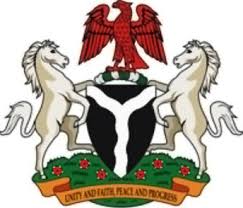FG to collaborate with Chinese affiliates for space mission

Nigeria’s Space Research and Development Agency (NASRDA) said that it has geared up for its bid to collaborate with its Chinese affiliates and spearhead this monumental initiative to launch its first manned mission into space as early as 2030.
Nigeria’s plans will mark the country as the first ever manned excursion into outer space by an African nation in the history of space exploration.
According to Felix Ale, head of NASRDA’s Media and Corporate Communications division headquartered in Abuja, a successful space program constitutes a historical cornerstone in the development and progress of the African nation.
“We contribute to various sectors that benefit the nation. The focus of our space program is on the socio-economic development of the country. The best way to fast-track development in any part of the world today is through the application of space science and technology.”
Many other African countries have already set their sights on space and are striving to tap into and harness the enormous potential and merit of space technology.
NASRDA, has already launched five satellites since 2003, with some still in orbit engaged in highly useful jobs.
According to the agency, its engineers are tirelessly pursuing the introduction of far more advanced satellites into orbit in due course.
READ ALSO: Solomon Dalung exposes ‘Cabal’ in Tinubu’s government
Nigeria, along with South Africa, has been spearheading the continent’s race in space technology over the years and both countries are mindful of the usefulness of satellites in the advancing realm of space exploration.
To achieve this ambitious goal, NASRDA is actively seeking to learn more about the space policy and strategies employed by their Chinese partners.
Other rising African countries have not lagged behind either, with Ghana and Kenya launching their respective space exploration initiatives in 2012 and making noteworthy strides in the process.
Harvard Kennedy School Professor Calestous Juma, a renowned Kenyan space expert, considered one of the most influential African authorities on the subject, believes that Nigeria has towering ambitions to enhance the scope of science, innovation, and space engineering that can have far-reaching merits for the country’s economy more than anything else.
“Scientific, technological and engineering capabilities would have direct economic benefits to Nigeria long before the decision of putting a person in space is made. Space walks are probably the least important. It is the scientific and technological infrastructure and its linkages to the rest of the economy that matters,” Prof. Juma said.
So far, citizens of 40 countries have ventured into space since the inception of the first ever manned space-flight, commanded by Russian Cosmonaut Yuri Gagarin, who made history in April 1961.
Since then, only three nations, namely the former Soviet Union, the United States, and China, have successfully launched their own manned space missions, with the first two integrating many astronauts hailing from other countries into their respective space programs.
It is believed there are over a thousand satellites drifting in orbit, nearly half of which have been dispatched by the United States.
Many such satellites can be spotted wandering in low-earth orbit, barely a few hundred kilometers above land. Some of the more prominent satellites include the International Space Station, the Hubble Space Telescope, and several other Earth observatories.
However, the National Space Research and Development Agency, established by Nigeria’s federal government nearly 17 years ago, has six operational centres.
The agency said it is working to improve upon its many advances in space sciences and similar technology-related pursuits in the interest of Nigeria’s social and economic development.
According to the agency’s official website, its mission is to achieve highest levels of technological competency in the manufacturing and launch of satellites slated for completion by the year 2025.










